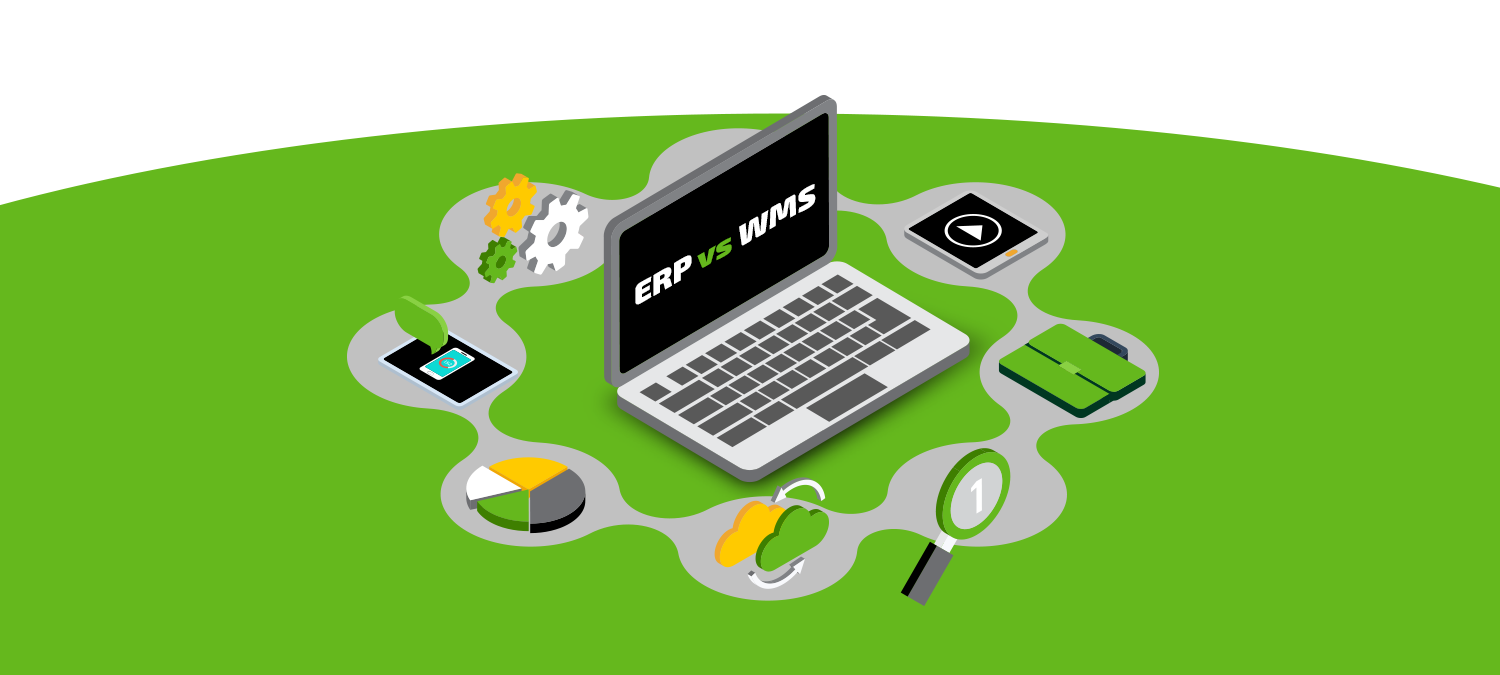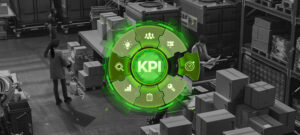Effective resource and process management are key factors in the successful operation of enterprises. As businesses grow, managing them becomes more complex. Companies are faced with the need to choose the right tools to optimize their business processes. Among such solutions, Enterprise Resource Planning (ERP) and Warehouse Management System (WMS) play a special role.
Both systems are aimed at automating and optimizing the operations of enterprises but are oriented towards different aspects of their activities. In this article, we will explain what is the difference between ERP and WMS, their functional capabilities, and help you make the right choice for your business.
- What Is Enterprise Resource Planning?
- What Is a Warehouse Management System?
- What Is the Difference Between ERP and WMS?
- ERP vs WMS: How to Choose?
- Conclusion: ERP vs WMS – Which Solution Is More Suitable for Your Business?
- Frequently Asked Questions
What Is Enterprise Resource Planning?
When a company grows, it needs to keep track of all aspects of its business, from sales and finance to production and human resources. Enterprise Resource Planning, or ERP, is software designed to manage all the business processes of an enterprise in one system.
ERP covers procurement, accounting, production, logistics, human resources management, finance, and other areas. It integrates information from different departments and processes into a unified flow of information. This helps the company better understand what is happening internally, make informed decisions, and improve its operations.
What tasks does ERP solve?
Enterprise resource planning creates a centralized and unified platform for managing all aspects of an enterprise. It helps address a multitude of tasks, including:
- Financial management: ERP allows tracking accounting operations, managing budgets, conducting financial analysis, and reporting.
- Production management: ERP controls manufacturing processes, from production planning and material procurement to tracking manufacturing operations and inventory management.
- Customer Relationship Management (CRM): Some ERP systems include a CRM module that manages customer relationships, tracks sales, and handles orders.
- Human resources management: Enterprise resource planning helps in timekeeping, payroll, workforce management, and other aspects of human resources management.
- Reporting and analytics: ERP provides capabilities for generating reports and analytical data, helping management make informed decisions based on up-to-date information.
What Is a Warehouse Management System?
A Warehouse Management System, unlike ERP, is exclusively designed for controlling and managing an organization’s warehouse operations. The primary goal of WMS is to optimize the processes of storage, picking, packing, and shipping of goods. It can make warehouse operations more organized, reduce errors, increase inventory accuracy, and efficiently process customer orders.
WMS is a standalone program, but it can be successfully integrated with other enterprise systems, especially with ERP.
What tasks does WMS solve?
WMS helps automate and organize warehouse operations, from inventory management to order processing and product shipping. The main functions of WMS include:
- Inventory management: WMS automatically tracks the receipt, movement, and shipment of goods in the warehouse, ensuring accurate inventory management.
- Warehouse space optimization: WMS helps efficiently utilize warehouse space by automatically allocating goods based on their characteristics, minimizing space losses, and reducing storage costs.
- Electronic document workflow: Warehouse management system simplifies document workflow in the warehouse. With its implementation, all reports, invoices, and other documentation are generated only in electronic format. This reduces the processing time of information and eliminates risks associated with the loss of paper documents.
- Real-time tracking: WMS supports the use of technologies such as barcodes, RFID, and others for accurate tracking of the location of each unit of goods in real-time.
- Automation of warehouse processes: WMS automates the receipt of goods in the warehouse, their picking, packing, and shipping, minimizing the risk of errors.
- Quality control: WMS provides the ability to track and record the quality of goods, identify defects or damages.
- Workforce optimization: The system allocates tasks to employees, minimizing their downtime and optimizing the use of labor resources.
- Reporting and analytics: WMS allows for analyzing the performance of warehouse operations and making informed decisions.
What Is the Difference Between ERP and WMS?
Due to the fact that ERP has a warehouse management module, some may not notice its clear boundaries with WMS. However, the difference between ERP and WMS is significant, and we will now examine it in detail.
ERP manages the enterprise, WMS – exclusively the warehouse
ERP manages all resources of the enterprise, including finance, production, management, sales, and more. Its goal is to ensure overall efficiency and transparency of the business processes of the enterprise. In contrast, a warehouse management system (WMS) focuses exclusively on warehouse operations and logistics. It provides a set of tools for efficient inventory management and organization of space in the warehouse.
ERP has a modular structure, WMS is an autonomous program
ERP has a modular structure, where various functional areas are represented as integrated modules. The warehouse management module may be part of ERP, but its features are usually limited compared to a standalone WMS.
WMS functions as a standalone program, specializing exclusively in warehouse management operations. However, it can seamlessly integrate as a module with ERP systems, providing a broader coverage of logistics and business processes.
ERP is managed by a person, WMS manages a person
Upon receiving an order, the warehouse management system automatically determines its further fulfillment. It identifies which items need preparation, where to move it, and how to organize the packing and shipping process. The system handles everything on its own, minimizing the involvement of human resources.
Unlike the warehouse management system, ERP involves user interaction with the system. It can provide you with information about past and current events. However, the decision on how to act on this information is still yours. For example, ERP may suggest canceling or rescheduling an order, but the final decision will be made by you.
WMS requires frequent data archiving
WMS operates in real-time mode and requires more frequent archiving. Typically, data is saved every 10 minutes. In an ERP system, all data is entered after the corresponding operations are completed. It does not require such frequent archiving. It is sufficient to save information once or twice a day or even less frequently.
ERP vs WMS: How to Choose?
As you have already realized, there is a difference between ERP and WMS and you should consider it when making your choice. First and foremost, base your decision on the needs and goals of your business. Take into account both current requirements and future strategic directions of the company. Here are a few key steps to help you make the right decision:
1. Identify the business needs
Examine the key business processes and operations that need optimization. Identify which aspects of enterprise management are more critical for your company: overall strategic management (ERP) or warehouse operations management (WMS).
2. Assess the scale of the activity
If your business has a broad range of activities requiring integration across multiple functional areas, ERP may be the more suitable option. If the primary focus is on optimizing warehouse processes, a warehouse management system (WMS) would be a more effective solution.
3. Compare the cost of the systems and your financial capabilities
Evaluate your budget for the implementation and maintenance of ERP or WMS. Consider that enterprise resource planning requires more investment, but it may provide more extensive capabilities for management.
4. Examine the integration aspects of each system
Consider how well ERP or WMS integrates with other systems you currently use or plan to use. If necessary, ensure the capability for integration between ERP and WMS to maintain data consistency.
5. Consider future business needs and system scalability
Anticipate business growth and ensure that the chosen system can scale according to the company’s development. Also, consider the flexibility of the system to adapt to changes in business processes.
6. Consult with experts
Consult with information technology specialists, system implementation consultants, or other companies in your industry for advice and recommendations. Explore reviews and experiences of other companies using the chosen systems.
Conclusion: ERP vs WMS – Which Solution Is More Suitable for Your Business?
Both ERP and WMS software are aimed at automating company business processes, seeking to optimize operations and increase profitability. The choice between ERP and WMS will depend on the unique needs and scale of your business.
ERP is a modular program that integrates various aspects of business, including warehouse management. This solution can assist large companies seeking to control all areas of their operations.
WMS is a standalone program focused solely on warehouse management operations. It optimizes inventory tracking, order fulfillment processes, and warehouse space management. A Warehouse management system can be a valuable solution for companies dealing with large quantities of inventory.
However, both ERP and WMS systems can complement each other within a comprehensive business automation strategy. If needed, you can integrate your warehouse management system as a module in ERP and ensure effective management of all aspects of your company’s operations.
Absolutely, understanding the difference between ERP and WMS and considering the specific needs of your enterprise is crucial. This awareness will enable you to successfully implement the software and enhance operational efficiency, contributing to the successful growth of your business.
Frequently Asked Questions
1. Is it possible to complement the existing ERP capabilities?
An ERP system comprises a set of core modules. If necessary, you can acquire additional modules to expand the system’s functionality.
2. Can WMS scale?
Yes, WMS systems typically have flexibility and scalability, allowing them to grow effectively alongside a company’s business.
3. How long will it take to implement an ERP system?
The implementation time of an ERP system can vary depending on the size of the company, the complexity of business processes, the choice of the vendor, and the availability of ready-made modules. On average, the process can take anywhere from a few months to several years.
4. How long will it take to implement WMS?
The implementation time of WMS depends on the size of the warehouse, the complexity of operations, and the choice of the vendor. Typically, the WMS implementation process takes from 1 to 3 months. If system customization is required to meet the specific needs of the business, the timeframe may extend from 3 to 10 months.







